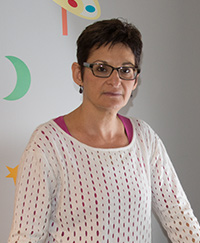Love and the hippocampus
Research shows children whose parents nurture them early in life have enlarged brain regions linked to learning, memory and response to stress

When children are nurtured by their parents parts of their brain associated with learning, memory and stress response end up larger than in other children who did not get as much nurturing.
School-age children whose mothers nurtured them psychologically early in life have brains with a larger hippocampus, a key brain structure important to learning, memory and response to stress.
The research by the division of child and adolescent psychiatry and other researchers at Washington University School of Medicine is the first to show that changes in this critical region of children’s brain anatomy are linked to a mother’s nurturing. Their research is published in the Proceedings of the National Academy of Sciences.
“This study validates something that seems to be intuitive, which is just how important nurturing parents are to creating adaptive human beings,” says lead author Joan Luby, MD, a Washington University child psychiatrist.
Importance of nurturing

“I think the public health implications suggest that we should pay more attention to parents’ nurturing, and we should do what we can as a society to foster these skills because clearly nurturing has a very, very big impact on later development.”
The brain-imaging study involved children ages 7 to 10 who had participated in an earlier study of preschool depression that Luby and her colleagues began about a decade ago. That study involved children, ages 3 to 6, who had symptoms of depression, other psychiatric disorders or were mentally healthy with no known psychiatric problems.
As part of the initial study, children were observed and videotaped interacting with a parent as the parent was completing a required task, and the child was asked to wait to open an attractive gift. How much or how little the parent was able to support and nurture the child in this stressful circumstance—which was designed to approximate the stresses of daily parenting—was evaluated by raters using standard measures.
For the current study, the researchers conducted brain scans on 92 of the children who had had symptoms of depression or were mentally healthy when they were studied as preschoolers. The imaging revealed that children without depression who had been nurtured had a hippocampus almost 10 percent larger than children whose mothers were not as nurturing.
“For years, studies have underscored the importance of an early, nurturing environment for good, healthy out-comes for children,” Luby says. “This study, to my knowledge, is the first that actually shows an anatomical change in the brain. Having a hippocampus that’s almost 10 percent larger just provides concrete evidence of nurturing’s powerful effect.
To read more about the study and access an audio report, visit the Newsroom.






